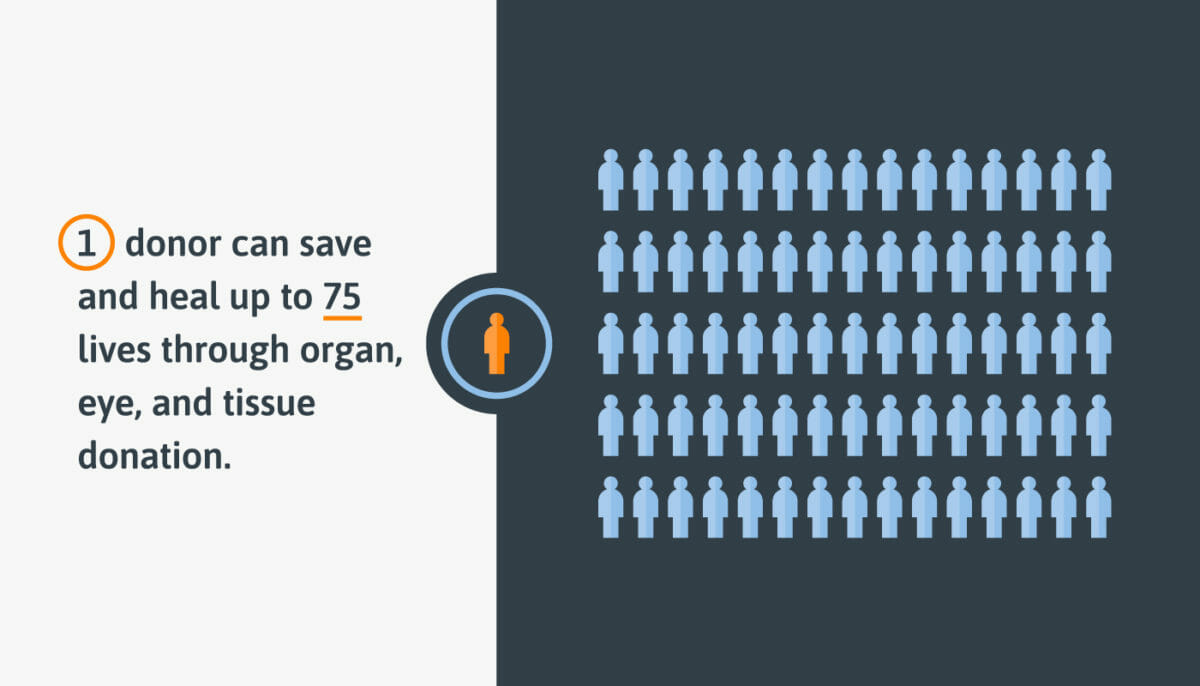Would Certain Conditions or Diseases Make You Ineligible to Donate?
Your age or health should not prevent you from registering as a donor. Most health conditions do NOT prevent donation and age is not a factor.

There are very few diseases that would make you ineligible to be an organ donor. Some severe infections, such as viral meningitis, active tuberculosis, Creutzfeldt-Jakob (Mad Cow) disease, and a few others would disqualify donation.
At the time of death, doctors determine whether you are medically suitable for donation. They evaluate each organ individually and even though some organs may be damaged, others might be healthy enough for transplant. For example, if someone passes away from a heart attack, they are not going to be able to donate their heart but they may be able to donate their kidneys and liver. Likewise, if a person has diabetes, they might not be able to donate their pancreas but may be able to donate their heart or lungs. Again, doctors will make decisions about what is safe to donate at the time of death.
People with conditions like high blood pressure, diabetes, or Hepatitis CAN sometimes donate their organs after death and save lives. It is even possible for individuals who are HIV-positive to donate to HIV-positive transplant candidates.
What’s a “Good” Organ?
Let’s say the heart of a 40-year-old male who had high blood pressure is available for transplant. After the database matches this donor with the safest recipients based on blood, tissue type, need, and location, two recipients are identified. Both are men experiencing heart failure, one is 25 years old and the other is 55. This would not be a “good” heart for a 25-year-old man, but this is a GREAT heart for a 55-year-old man whose heart is failing.

There Are Many Ways to Help
When people consider donation, they often think only of major organs that can be donated (heart, lungs, liver, kidneys, pancreas, and intestine). While these gifts are incredibly important for saving lives, other equally transformational gifts are often overlooked. Donated tissues like corneas, skin, veins, tendons, bone, heart valves and connective tissue are all essential and help in many ways:
- Heart valves can be transplanted to save the lives of children born with heart defects, and adults with damaged heart valves.
- Skin can be used as a natural dressing for people with serious burns. It can even save lives by stopping infections.
- Corneas can give someone with an eye injury or disease the ability to see again.
- Bone is important for people receiving artificial joint replacements, or replacing bone that has been removed due to illness or injury, for example in hand transplants.
- Tendons, the elastic-like cords that attach bones and muscles to each other, can be donated to help rebuild damaged joints and help someone walk again.
Most people can be tissue donors when they pass away.
 Skip to main content
Skip to main content
